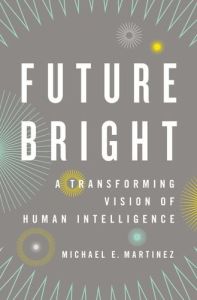Join getAbstract to access the summary!

Join getAbstract to access the summary!
Michael E. Martinez
Future Bright
A Transforming Vision of Human Intelligence
Oxford UP, 2013
What's inside?
How smart are you? How do you know? And can you get smarter?
Recommendation
In this methodical discussion, Professor Michael E. Martinez defines intelligence, reviews how humans have codified and studied it through history, and explains its theoretical and biological foundations. He addresses the mechanical – like how synapses work – and the hypothetical, such as the nature of nonhuman and artificial intelligences. He even explains how to increase your intelligence. The subject requires Martinez to make fine distinctions and discuss scholarly articles, so readers may find the result slow going. That caveat aside, getAbstract recommends his insights as food for thought for readers interested in human intelligence, education, testing and societal trends.
Summary
About the Author
Michael E. Martinez is the former vice chair of the Department of Education at the University of California, Irvine. He specialized in enhancing intelligence and improving education.
















Comment on this summary
It is not surprising that wisdom is not mention as it self is a improbable conceptualize concept for raining and evaluated.
As such Future Bright is beautiful book!